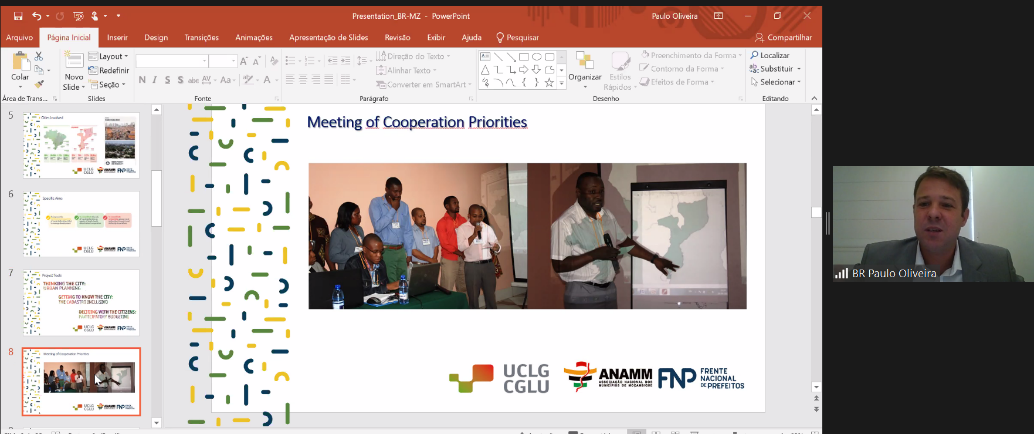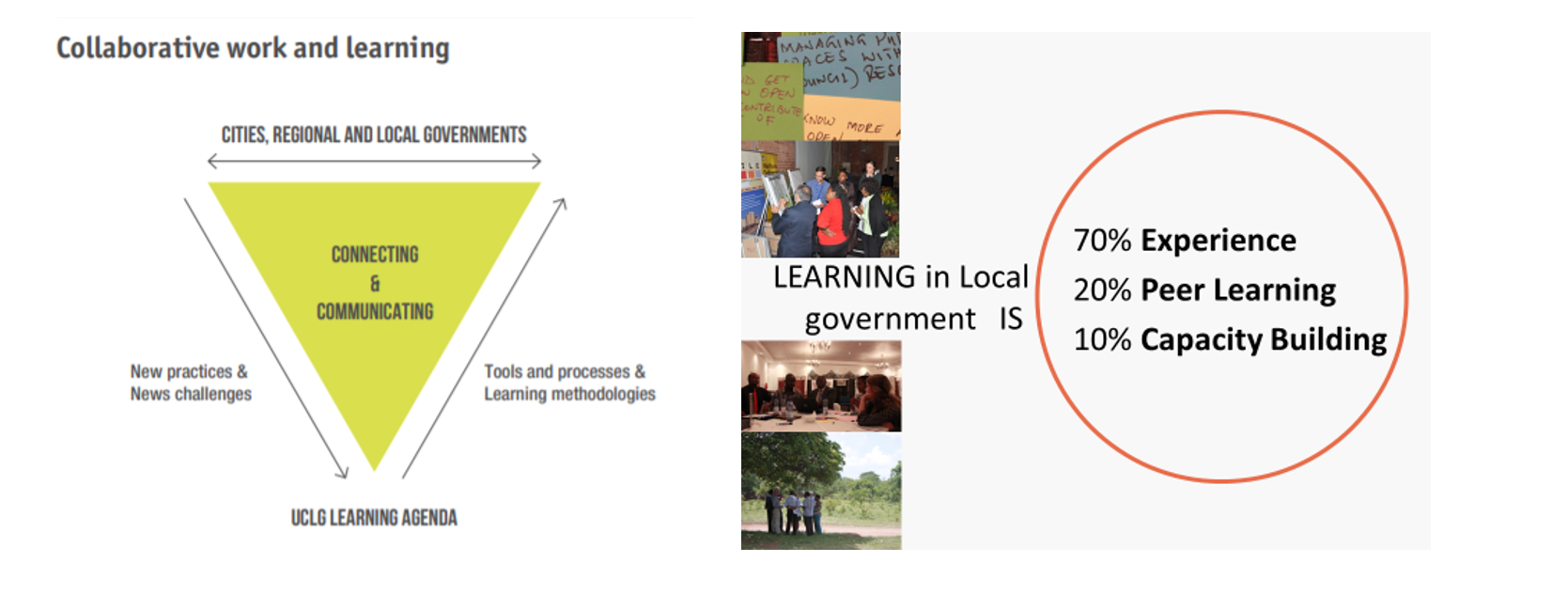UCLG Learning shares insights in OECD EIP session: From engaging individuals as peers to engaging institutions and systems
18.02.2021
The Effective Institutions Platform (EIP) hosted a virtual knowledge-sharing session on 11 February, on learning through interconnected systems. UCLG Learning shared insights on the ways in which monitoring, evaluation and learning can be used to connect organizational systems via peer-to-peer (P2P) learning contributes to problem-solving and institutional change.
The EIP is an alliance of over 60 countries that support country-led and evidenced-based policy dialogue, knowledge sharing and peer learning in public sector. The second in a series of learning events, the OECD / EIP Secretariat aimed to provide a space in which practitioners could share experiences. Drawing on three cases for their practices and tools, experts reflected on questions such as, how can P2P partnerships go beyond the individual to enable organisational learning, and learning across networks of entities and organisations? Moreover, how can institutional change and learning be sustained?
The first, led by the Network of Associations of Local Authorities of South-East Europe (NALAS) and the Albanian Ministry of Finance and Economy, explored how a P2P exchange in Albania had successfully resulted in the passing of a new law on local government finance. The effectiveness of the reforms was attributed to the design and implementation process, wherein all relevant stakeholders and organisations had actively been involved. This created the necessary momentum and trust between actors, and a sense of ownership, critical to its success.

The second case explored city-to-city learnings between Brazil and Mozambique, coordinated and implemented by UCLG, the National Association of Municipalities of Mozambique (ANAMM) and the Brazilian National Front of Mayors (FNP). Paulo Olivieria and Pedro Laice, International Relations Coordinators of FNP and ANAMM , highlighted that not only did the project empower local experts, it also strengthened institutional and political capacity. Moreover, even where politicians have changed, the knowledge has been maintained owing to the presence of ANAMM and FMP. One discussant reflected how the case showed the value of a two-pronged approach, with systems change coming both from individuals and higher-level organisations, for example councils or departments.
The third case was presented on the Collaborative Africa Budget Reform Initiative’s (CABRI) programme, ‘Building Public Finance Capabilities’ (BPFC), in the Gambia. Using the Problem Driven Iterative Adaptation (PDIA) approach, three preconditions were identified for a successful reform: a locally-identified policy-problem, an enabling environment for experimentation, and the ability to involve and mobilise a range of actors.

Discussant, UCLG Learning Director, Sara Hoeflich highlighted the importance of both problem based and political buy-in evident in all the cases. With a sense of ownership, other challenges such as transparency of financing are manageable. She further emphasised the importance of finding local solutions according to local contexts and similarly, appropriate, new indicators for different contexts. In fact, the UCLG peer learning approach has been based on these principles for some years already.
The session wrapped up with a final reflection on how learning can be diffused, institutionalised and sustained across peer organisations, and on the importance of local acceptance of processes, without which, learning cannot take place. The insights gathered from the event will contribute to a dedicated OECD EIP Learning Note, and the next learning event will focus on localising of learning.